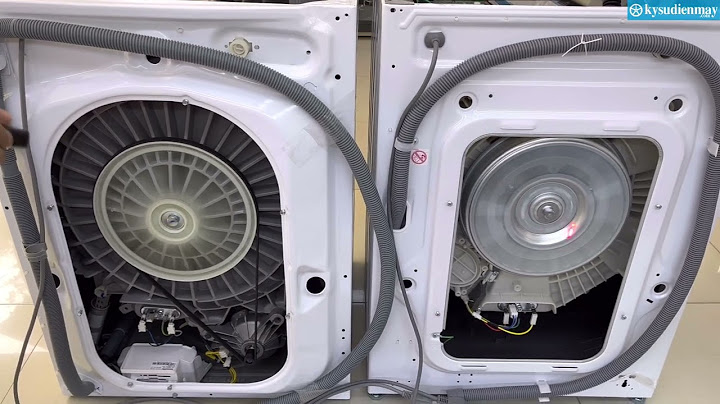In 2017, 13 Reasons Why made waves through its popularity on Netflix, especially with teens, for many reasons. On a base level, the first season of the show is one of the best book-to-series adaptations out there. It also, in its final episode and especially the seasons beyond, ruined everything. So how did a show, one that handled the transition from page to the screen so well for the most part, manage to deeply undercut its powerful message? Well, the show chose to sensationalize the tough topics it was exploring in overly graphic, dangerous ways to a teen audience. For a show that was supposed to bring to light the real problem of suicide, especially in teens, it ultimately failed in its message by doing too much. Show
'13 Reasons Why's First Season Was Nearly Perfect Season 1 follows the aftermath of Hannah Baker's (Katherine Langford) suicide and all those who knew her dealing with it. Cassette tapes show up on Clay Jensen's (Dylan Minnette) doorstep, and he soon finds that they were recorded by Hannah, explaining her reasoning for taking her own life. This narrative has earned criticism from a lot of mental health experts, citing that it could be taken as a revenge ploy. It was perhaps probably meant more for just explanation reasons, her leaving the tapes to the people she spoke about, but that angle is not an unsupported analysis of the series. The tapes themselves are a cautionary tale of taking accountability for our actions, to remember that everything we do has an outside effect on other people, no matter how small. Be kind. A lot of the characters, barring one especially heinous one, had simply just been mean teenagers. We all mess up, but that doesn't mean our actions don't have consequences. As an adaptation, this is all anyone could ever want, especially in its structure. The book was perfect for the series format. With each tape comes a separate episode for it. 13 reasons. 13 episodes. That isn't to say that nothing was changed from book to screen. This show ended up changing quite a bit. It rearranged tapes. It, to fill out a full thirteen-episode season, had to spend time elsewhere. The book is from Clay's perspective, so in the show, we are shown nearly everyone's perspective, and it just makes sense. And it's pulled together even more by great performances all around. '13 Reasons Why's Suicide Scene Is Too Graphic But what went wrong in its final episode? That is when one change from the book went too far for many. In the novel, it is implied that Hannah had overdosed on pills. In the show, Hannah graphically cuts her wrists in a long, drawn-out scene. Creators had mentioned at the time that they had wanted to show the true ugliness of suicide, to not glamorize it by showing it off-screen, hiding it away. Inadvertently, they created possibly one of the most disturbing scenes on television ever. Especially after all the terrible events of the entire show, no one wants to see that. And it could be argued that it needed to be seen, but this is a YA show, and they needed to be more careful with how they portrayed things on screen. After many mental health professionals came out against that scene in the show, Netflix eventually altered it. There is a question of altering a show after the fact, but that is a whole different conversation. The scene cuts before anything is seen, and jumps straight to after where Hannah's parents find her. This scene is still quite censored, it is cropped poorly and takes the viewer out of the scene a bit because of that. In the end, it was all around a poor decision to have that graphic of a suicide portrayal on screen for a show aimed at teens, but the show still manages to have a good ending. And that's where it should have stayed. '13 Reasons Why' Should Have Ended After Its First Season.jpg) Once the show was renewed for a second season, and beyond, it was clear they were risking the integrity of the show. For what it's worth, the second season holds itself together the best out of the rest of the show's seasons. We get to see more of the aftermath of Hannah's death, a remembrance of her, and Clay moving on. But we also unfortunately get a shaky mystery plot, something that would haunt the show for the rest of its seasons. And a messily executed school-shooter plot point tagged in at the end of the season as the cliffhanger for the next one. Season 3 picks up with the death of Bryce Walker (Justin Pretince), and begins a murder mystery surrounding him. This is probably the most disrespectful season. Much of the season dives into Bryce's past and seemingly tries to humanize him to the audience. That doesn't work after a horrible sexual assault scene near the end of the first season. Even if he is murdered in the show, it didn't have to justify his death with flashbacks. The fourth and final season is packed with social commentary that doesn't feel earned, instead feeling as if it was all haphazardly thrown together. It once again tries a weak mystery plot that it didn't need. The show should not have dedicated itself to this format for each season - it retreads its steps without adding anything meaningful. It would have salvaged the final season somewhat if it focused on grief moving forward. Even with the misstep at the end of the first season with the showing of her suicide so graphically, the show probably would have been remembered better if it ended after that. '13 Reasons Why' Is Needlessly Cruel There's a fair share of nihilistic shows out there, and some of them are quite popular. A simple example would be Game of Thrones which became famous for killing off beloved characters. 13 Reasons Why needed to be a bit more careful though. A lot of younger teens were watching this show, and it's a series surrounding the important and sensitive topic of mental health. From the graphic suicide to some equally graphic sexual assault scenes, it's clear that they didn't need to be shown in full like they were. And this isn't just a criticism aimed at a show for teens, this same criticism has been aimed at shows and movies for adults as well in recent years. Its shaky relationship with portraying death is also odd. It hardly balances Hannah's death, Bryce's, and finally, Justin's (Brandon Flynn) in the final episode. After so much of the show dedicates itself to moving on from death why, in its finale, would they choose to kill off one of the main characters after a redemption arc over the four seasons? In the end, the show was used for shock value and not true character arcs that made sense for the series. 13 Reasons Why could have made its biggest impact by just being one season, ending where it was at its strongest. Other shows like John Green's Looking For Alaska, which deals with a similar subject, show how strong a show can be with just one season. 13 Reasons Why should have ended just like how it began - with Hannah. What went wrong with 13 Reasons Why?Had the producers been truly invested in promoting mental health, then the showrunners would have done adequate research and work to ensure that suicide would be responsibly portrayed on screen. The most egregious example of irresponsible portrayal came with showing – in graphic detail – Hannah Baker's suicide scene. Why is 13 Reasons Why rated bad?The series has included graphic depictions of Hannah's suicide and sexual assault. There is also a disturbing scene in which a male student is sodomized with a mop handle, and that same student almost carries out a mass shooting at their school. When did 13 Reasons Why get bad?By the end of season 4, literally every single character in this one grade of this one school has had some of the most earth-shatteringly terrible life events happen to them over the course of a couple of years. They all possess the most unlikeable hypocritical attitudes (don't get me started on Jess). What are the negatives of 13 Reasons Why?A significant proportion of suicidal teens treated in a psychiatric emergency department said that watching the Netflix series 13 Reasons Why had increased their suicide risk, a University of Michigan study finds.. The hit drama, widely popular among teens, has generated controversy for its depiction of suicide.. |




















